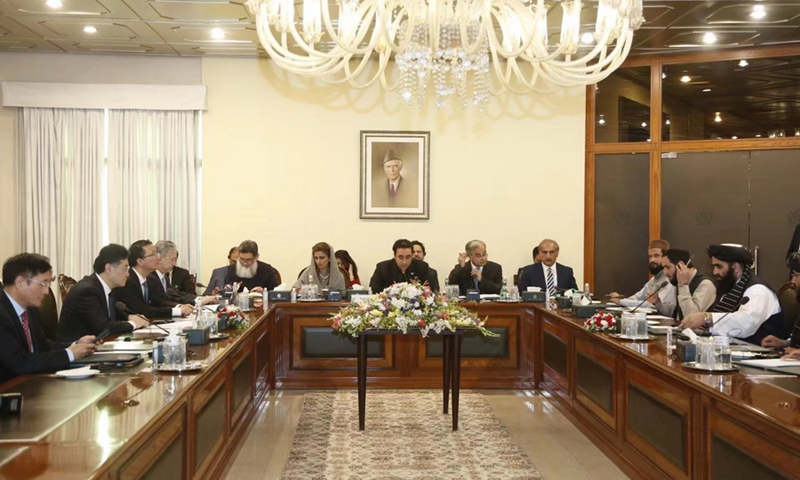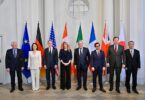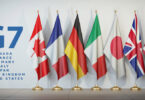China, Afghanistan and Pakistan have stressed on the need of not allowing any individual, group or party, including the Tehreek-e-Taliban Pakistan (TTP), the Eastern Turkistan Islamic Movement (ETIM), to use their territories to harm and threaten regional security and interests, or conduct terrorist actions and activities,the three countries emphasized in a joint statement. The Chinese Foreign Ministry released the joint statement on Tuesday.
According to the statement, all three sides underscored the need to refrain from intervening into internal affairs of Afghanistan, and to promote Afghan peace, stability and reconstruction.
The commitment came after the fifth round of China-Afghanistan-Pakistan Foreign Ministers’ Dialogue was held on Saturday in Islamabad, in which Chinese State Councilor and Foreign Minister Qin Gang, Pakistani Foreign Minister Bilawal Bhutto Zardari and Acting Foreign Minister of the Afghan interim government Amir Khan Muttaqi had honest and deep exchanges of views on mutual trust, anti-terrorism and investment.
This is the first foreign ministers’ dialogue between China, Afghanistan and Pakistan since the dramatic change of the situation in Afghanistan in 2021, marking the resumption of the trilateral cooperation mechanism, Chinese Foreign Ministry Wang Wenbin said at a press briefing on Tuesday.
During the dialogue, the three foreign ministers candid and in-depth exchanges on such topics as good-neighborly and mutual trust, security cooperation and counter-terrorism, connectivity, trade and investment, and reached a series of consensuses, Wang said.
Compared with the previous vague promise of countering terrorism on its land, it is the first time that the Taliban-ruled Afghanistan authority explicitly stated in a formal multilateral document that the TTP and ETIM, two terrorist organizations of grave concern to China, are not allowed to use Afghanistan’s territory to conduct terror attacks, Zhu Yongbiao, director of the Center for Afghanistan Studies at Lanzhou University, told the Global Times on Tuesday.
According to the joint statement, besides expanding and deepening cooperation in political, development, and security areas, including cracking down on organized crimes and drug trafficking, the three countries stressed the importance of sustained and urgent humanitarian assistance to the Afghan people, including the urgency of bridging the humanitarian funding gap.
Afghanistan faces the largest humanitarian crisis in the world today, said UN Secretary-General Antonio Guterres on May 2 following a two-day meeting on Afghanistan in the Qatari capital of Doha attended by special envoys from more than 20 countries and international organizations, including China, Russia and the US.
Guterres said 97 percent of the population in Afghanistan is living in poverty and two-thirds of them need humanitarian assistance to survive this year, and he called for more funding for the UN humanitarian response plan which seeks $4.6 billion in funding, but has only received $294 million dollars.
The joint statement said the Afghan interim government’s repeated promises of protecting women’s rights has been noticed and the three countries called on the international community to help Afghanistan support its rebuilding and improve its governance to effectively protect the basic rights of Afghan women, children and people of all social classes.
Zhu said the concerns of China and Pakistan in the joint statement are in line with the international community’s. If the Taliban-ruled Afghanistan wants to win recognition and gain support from the international community, it needs to effectively fulfill its commitments such as protecting women’s rights, cracking down on terrorist forces within its territory and improving its domestic security situation.
Courtesy: Global Times







